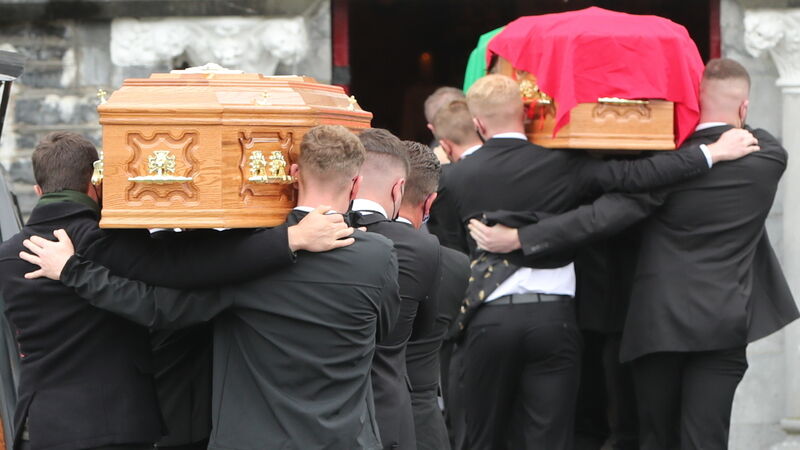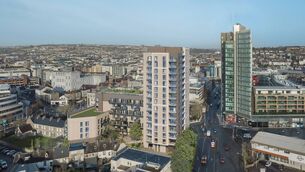Lixnaw murder-suicide victims' families criticise the lack of HSE supports

The coffins of Eileen and Jamie O'Sullivan are carried into St Michael's Church in Lixnaw in North County Kerry. Picture: Niall Carson/PA Wire
Surviving parents of children killed in three of Ireland’s most tragic murder-suicides have supported a call for more psychological support for communities struck by such events.
That is after relatives and neighbours of a Kerry family who died in a double murder-suicide last year appealed for better mental health support for the community after such a tragedy.













